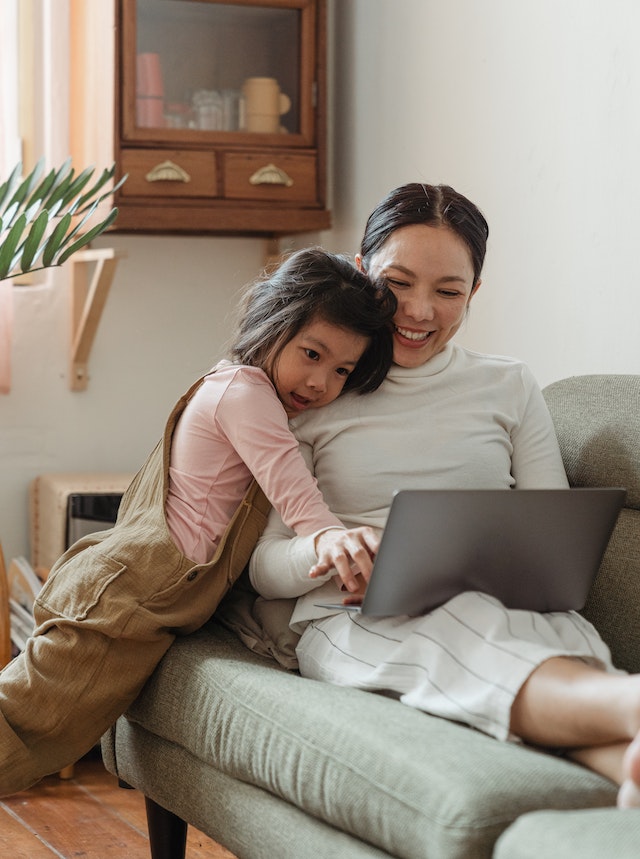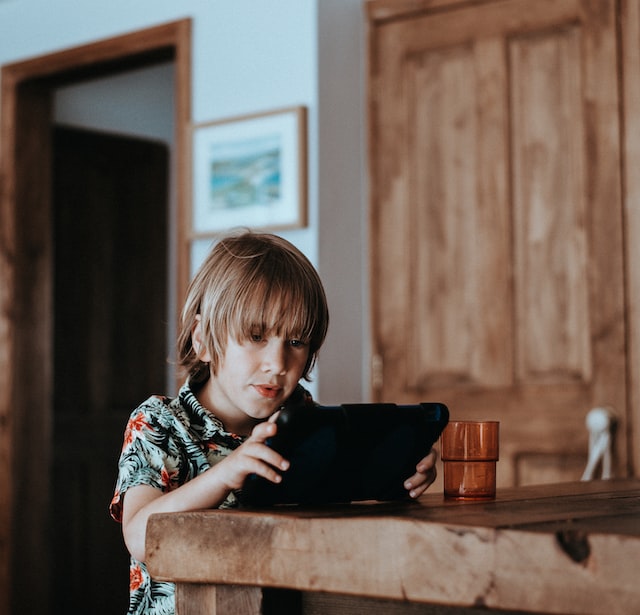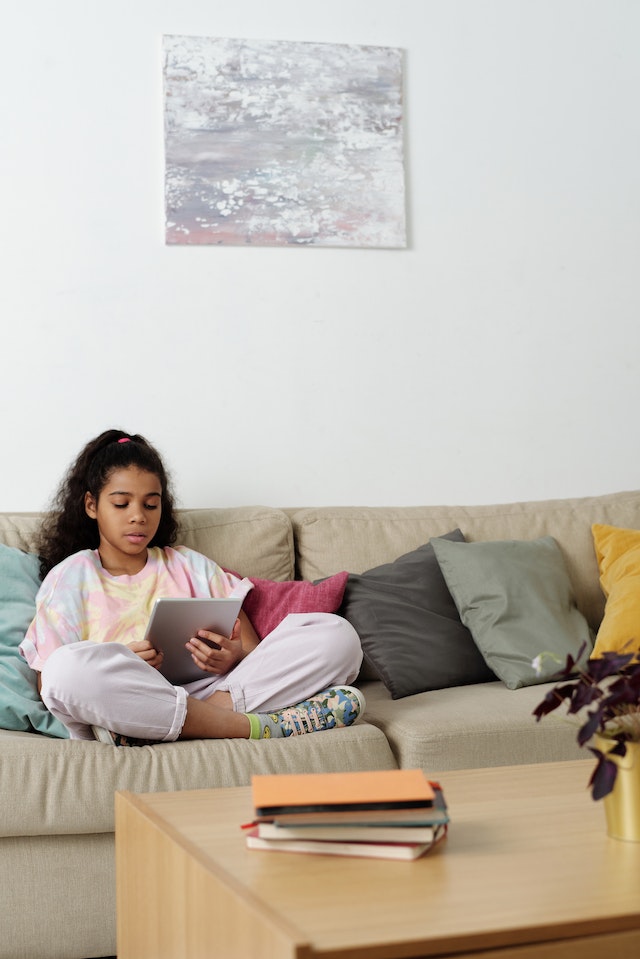Screen Time Guidelines
Check out our Kid's ProgramsSCreen Time Guidelines
Check out our Kid's ProgramsHow many hours are your kids in front of a screen?
Did you know that The American Academy of Pediatrics uncovered that the average child spends an average of 7 hours of time in front of a screen every day.
You may ask yourself “are screen time guidelines even important?”
If your children have smartphones, tablets, or use another kind of screen, it is important to enact screen time guidelines to protect them.
At in , we want to support you in raising your kids.
Why screen time guidelines?
Setting screen time guidelines for your child’s devices and screen usage may feel like a waste of time, however, it is vital to protect your child from the potential hazards of the internet and screen addiction.
Here are 3 compelling reasons why screen time guidelines on your child’s screen time are beneficial and smart.
Protect your child from mental health problems
1 in 4 young people and children have an unhealthy relationship with their smartphones and devices that could be damaging to their mental health. Excessive screen time has been linked to anxiety and depression. And in some cases, phone usage is so severe that it could qualify as an addiction. While research about the long-term effects of smartphone usage is still coming out, setting screen time and usage limits on your child’s phone protects their minds and hearts.
Monitor content
If your child has unfettered access to screens, you may be unaware of the kind of content they are exposed to. Even screens that seem harmless can potentially expose your child to excessive violence, sexual content, adult language, advertising aimed at your child, or false information.
Promote healthy physical activity
Screen addiction in young children and teenagers has been linked with obesity, sleep problems, and shortened attention spans. By establishing screen time guidelines and rules, you can avoid these physical development problems and encourage your kids to spend time outside in real life, playing or being outside.
Remember, our brains are in the most pivotal stages of development in our childhood years, so setting up appropriate time limits for screens is important to protect your kid’s brain.

Kid’s Programs for Your Family
Our family programs at in provide safe, engaging support for you in raising up your kids.


Some Potential Screen Time Guidelines For All Ages
Different aged children may require different screen time guidelines, but in general, these guidelines will help protect you and your child from screen overconsumption, no matter what age.
No screens in the bedroom
If you keep screens such as video games and TVs out of the bedroom, you are able to monitor usage and relegate time spent watching tv to one room in the house.
No screens for kids under 18 months old
Pediatricians are recommending that young children under the age of 18 months not use screens at all, with the exception of video chatting.
Less than 1 hour a day for children under 5
Child psychologists and doctors encourage children under the age of 5 to have no more than an hour of screen time per day, and never have “solo screen time” or unsupervised screen time.
Set up specific “no-screen” times
You can encourage your family to not rely on screens if you set up regular times when you collectively agree to not use screens. This could be a day of the week (no-screen Sundays), or during a time of day, like at the dinner table or while on a family outing.
Put away screens at least an hour before bedtime
Because screen time has been linked to poor sleep habits, we recommend putting all screens away at least an hour before bedtime. A screen mimics daytime in your brain, and can lead to insomnia. Turning off screens before bed allows your brain to naturally get ready for sleeping.
Install parental controls on your child’s devices
If your children have smartphones or you are considering giving your child a cell phone, consider the benefits of parental controls and setting limits on your kids’ devices. This can protect your child from bullying, inappropriate content, and online predators.
Don’t use a screen as a babysitter or pacifier
It can be easy to stick your child in front of a screen when you are busy and they need a distraction. But teaching your child that a screen is a way to occupy them when you are busy may prevent them from developing healthy relationships with screens.
Developing a Healthy Relationship with Screens
Screens, devices, and internet usage have become everyday experiences for all of us. There is no way to completely eliminate screens from our lives. Your child is likely using a screen at school, and we frequently use computers for our daily activities and jobs.
But we can develop healthy patterns for ourselves and our families when we think about screen time guidelines and usage. Setting up expectations around screen time can help you navigate usage with success.
- Familiarize yourself with the programming your child may watch to make sure it is age-appropriate
- Keep an open line of communication with your child about the kinds of things they see on TV, social media, and in video games
- Be aware of advertising and how it influences choices and inclinations
- Encourage your child to participate in other activities such as sports, music, art, and hobbies that do not involve screens
- Set a good example for your family with your own safe and healthy screen habits
- Teach children about online privacy and safety
- Actively decide when your child is ready for a personal device
- Encourage using screens in ways that build creativity and connection with family and friends

Kid’s Programs for Your Family
Our family programs provide safe, engaging support for you in raising up your kids.